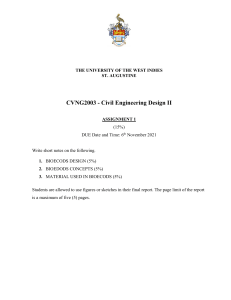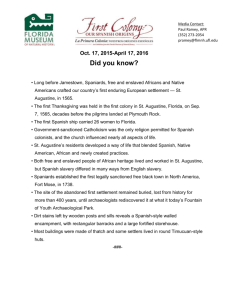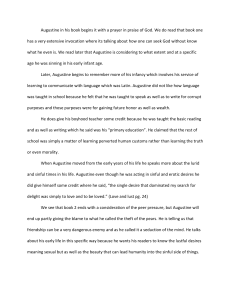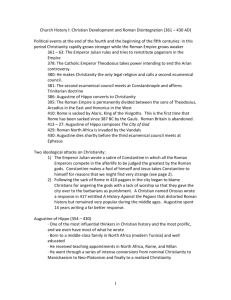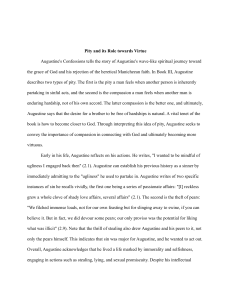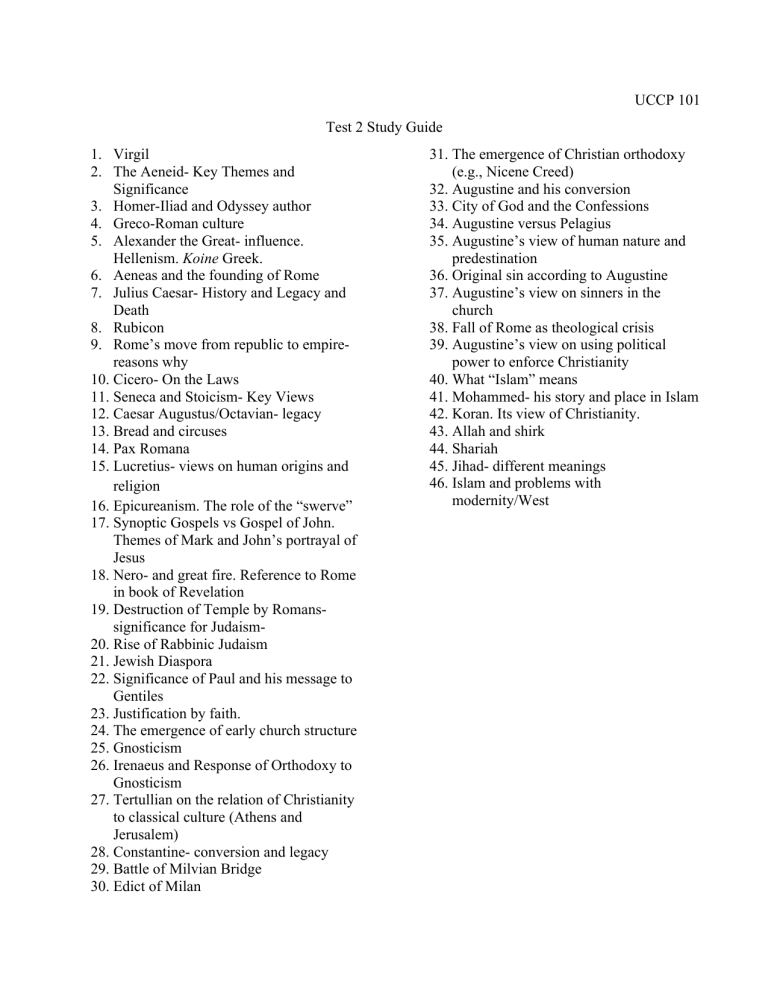
UCCP 101 Test 2 Study Guide 1. Virgil 2. The Aeneid- Key Themes and Significance 3. Homer-Iliad and Odyssey author 4. Greco-Roman culture 5. Alexander the Great- influence. Hellenism. Koine Greek. 6. Aeneas and the founding of Rome 7. Julius Caesar- History and Legacy and Death 8. Rubicon 9. Rome’s move from republic to empirereasons why 10. Cicero- On the Laws 11. Seneca and Stoicism- Key Views 12. Caesar Augustus/Octavian- legacy 13. Bread and circuses 14. Pax Romana 15. Lucretius- views on human origins and religion 16. Epicureanism. The role of the “swerve” 17. Synoptic Gospels vs Gospel of John. Themes of Mark and John’s portrayal of Jesus 18. Nero- and great fire. Reference to Rome in book of Revelation 19. Destruction of Temple by Romanssignificance for Judaism20. Rise of Rabbinic Judaism 21. Jewish Diaspora 22. Significance of Paul and his message to Gentiles 23. Justification by faith. 24. The emergence of early church structure 25. Gnosticism 26. Irenaeus and Response of Orthodoxy to Gnosticism 27. Tertullian on the relation of Christianity to classical culture (Athens and Jerusalem) 28. Constantine- conversion and legacy 29. Battle of Milvian Bridge 30. Edict of Milan 31. The emergence of Christian orthodoxy (e.g., Nicene Creed) 32. Augustine and his conversion 33. City of God and the Confessions 34. Augustine versus Pelagius 35. Augustine’s view of human nature and predestination 36. Original sin according to Augustine 37. Augustine’s view on sinners in the church 38. Fall of Rome as theological crisis 39. Augustine’s view on using political power to enforce Christianity 40. What “Islam” means 41. Mohammed- his story and place in Islam 42. Koran. Its view of Christianity. 43. Allah and shirk 44. Shariah 45. Jihad- different meanings 46. Islam and problems with modernity/West
